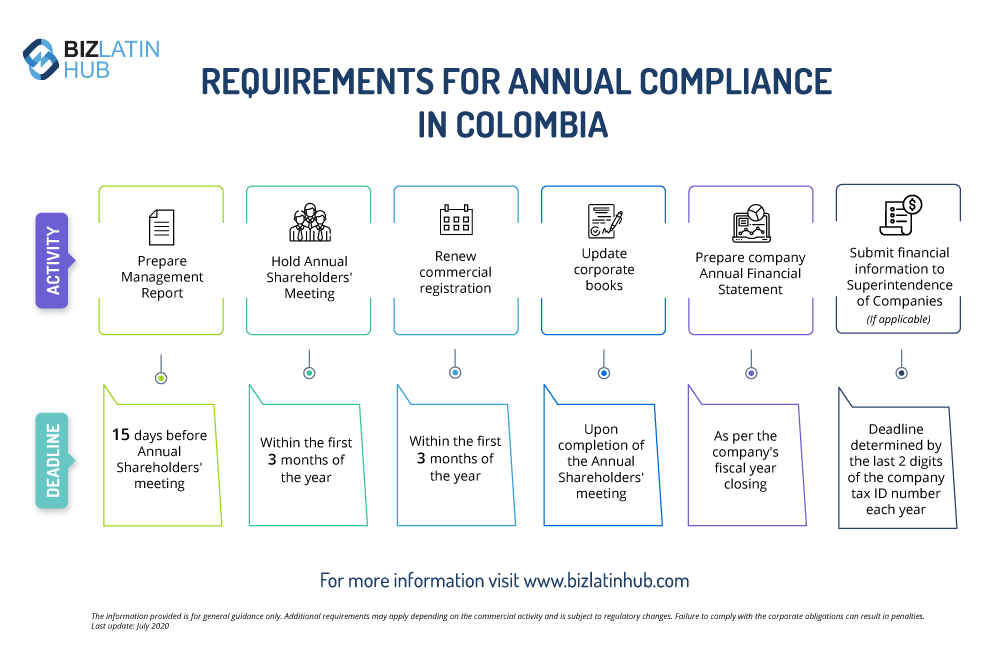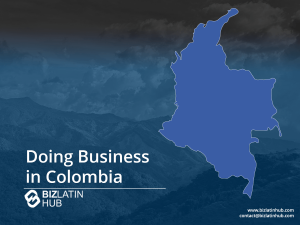Transfer pricing involves setting prices for transactions between related entities. This practice plays a crucial role in international trade and taxation. Understanding its implications is essential for businesses operating in multiple jurisdictions.
The Arm’s Length Principle governs transfer pricing, ensuring that transactions between related parties reflect market conditions. Compliance with this principle is vital to avoid tax disputes. Colombia has specific regulations detailing requirements for maintaining consistency with this principle.
This article provides a comprehensive overview of transfer pricing in Latin America, with a focus on Colombia. Key topics include regulations, documentation requirements, transfer pricing methods, and compliance best practices. Understanding these elements will assist businesses in navigating the complexities of transfer pricing effectively.
What is transfer pricing?
Transfer pricing is an accounting practice where related entities within a multinational company set prices for goods, services, or intangible assets exchanged among them. This affects where profits are taxed based on strategic pricing. By allocating earnings among their subsidiaries, companies can shift profits to low-tax jurisdictions, reducing their overall corporate tax burdens.
Regulations now focus on ensuring profits are taxed where companies create value. Multinational corporations face tighter restrictions and documentation due to these rules. In Colombia, transfer pricing regulations are governed by Law No. 788 of 2002, updated in 2013. They align with international standards, including OECD guidelines and BEPS recommendations.
Colombian taxpayers must determine income and expenses based on comparable transactions with independent parties. This ensures transparency and fairness in cross-border dealings. Compliance with the transfer pricing regime is crucial to avoid penalties and meet obligations set by tax authorities. Through these measures, governments ensure multinationals contribute fairly to the economy.
What is The Arm’s Length Principle?
The Arm’s Length Principle is in Article 260-2 of the Colombian Tax Statute. Related-party transactions must be valued like those between independent parties. Compliance is vital in Colombia’s self-assessment system. Taxpayers must prove adherence in their income tax returns.
Violating the Arm’s Length Principle can lead to tax losses. Ensuring fair related-party transactions is crucial. Tax violations lead to negative impacts in income tax submissions.
Colombia follows OECD Transfer Pricing Guidelines for interpretation. The Constitutional Court affirmed this in ruling C-690 in 2003. These guidelines help apply the Arm’s Length Principle effectively.
Market values should determine prices to reflect fairness. Transactions between related entities must meet market standards. This maintains equity in economic exchanges.
Key Points of the Arm’s Length Principle:
- Valuation akin to independent parties
- Adherence needed in tax returns
- Use of OECD Guidelines
- Fair market-based transaction pricing
These measures ensure taxpayers fulfill Colombian transfer pricing law, preventing unwarranted tax liability.
Colombia’s Transfer Pricing Regulations
Colombia bases its transfer pricing regulations on Articles 260-1 to 260-11 of the Tax Statute and Decree 2120 from December 15, 2017. These align with OECD guidelines. Taxpayers must use the Arm’s Length Principle for transactions with foreign related parties. This includes those in free zones and non-cooperative jurisdictions.

In 2002, Law No. 788 first established the transfer pricing framework. The regulations underwent major changes in 2013, introducing formal obligations like Informative Affidavit filings. Since 2017, documentation requires a Local File, Master File, and CbC Report, in line with BEPS Action 13.
Colombian tax authorities can adjust transfer prices if they find transactions outside acceptable price ranges during economic analysis. They use median values for these adjustments. The regulations ensure compliance with global standards and safeguard the country’s fiscal interests.
Key Documents Required:
- Local File
- Master File
- Country-by-Country (CbC) Report
These elements are vital for maintaining compliance and avoiding penalties. Taxpayers must stay informed and ensure proper documentation submission within deadlines.
In Colombia, related party transactions must meet specific requirements. Parties must file a Local Transfer Pricing Report for transactions surpassing 45,000 Tax Value Units, or when dealing with non-cooperating jurisdictions in amounts over 10,000 Tax Value Units.
The Local Transfer Pricing Report includes:
- Executive summary
- Functional analysis
- Market analysis
- Details of transaction amounts and methods
Taxpayers engaged in international related party transactions need to maintain supporting documentation. This includes accounting records, invoices, and contracts. Compliance aligns with global standards, adhering to the arms length principle.
The information statement for transfer pricing must be submitted using the 1125 format. Taxpayers must upload an XML file through the DIAN.
This table summarizes the requirements:
| Requirement | Details |
|---|---|
| Transaction threshold | 45,000 Tax Value Units (related) |
| Transaction threshold (non-cooperating) | 10,000 Tax Value Units |
| Report Inclusions | Executive summary, functional and market analyses |
| Supporting Documentation | Accounting records, invoices, contracts |
| Submission Format | 1125 format generating XML file |
Taxpayers must follow these rules and submit all necessary documents for those transactions.
Documentation Requirements for Compliance in Colombia
Colombia enforces stringent transfer pricing rules. Taxpayers must prepare a Local Transfer Pricing Report. This report is mandatory for transactions with related parties exceeding 45,000 Tax Value Units. It is also required for transactions with non-cooperating jurisdictions exceeding 10,000 Tax Value Units. The report must include data from information statements, evidencing transaction amounts, employed methods, company income, an executive summary, and a functional analysis. Supporting documents are essential. Taxpayers must compile invoices, contracts, and accounting records. Compliance with these requirements is vital to meet Colombian regulations.
Informative Statement (Form 120) Details
Form N°120 is a vital document in Colombia. It demonstrates transparency in transfer pricing compliance. Income taxpayers engaged in transactions with foreign affiliates must submit it. The form and its annexes comply with regulations set by Colombian tax authorities. Filing begins in September each year, aligning with the laws under articles 260-1 to 260-11 of the Tax Statute. Accurate and prompt submission is crucial to fulfill obligations under the Colombian transfer pricing regime.
Local and Master Transfer Pricing Reports
The Local Transfer Pricing Report in Colombia is due by May 15 following the tax year. This new deadline replaced the former December 31 deadline. The Master File deadline is now unified with Local File and Transfer Pricing Return deadlines to September, starting in 2024. Taxpayers part of multinational groups, meeting specified thresholds, must prepare and submit the Master Report. The Colombian Tax Statute demands detailed documentation to ensure the arm’s length principle guides transfer pricing. These requirements accord with OECD guidelines. Documentation must be categorized into a Master File, Local File, and Country-by-Country Report.
Filing Obligations and Responsibilities
Colombian tax law mandates specific filing obligations. Large national taxpayers, large territorial companies, and entities in the free zone regime must file annually. This applies if intercompany transactions exceed 1000 base salaries ($740,000). The Directorate-General of Taxation has not specified a system for filing the transfer pricing tax return, leaving deadlines unspecified. Non-compliance with the arm’s length principle allows the Tax Administration to adjust income or costs. Article 260-2 of the Tax Statute emphasizes regulations for related parties, specifically with foreign entities or those in favorable tax areas.

Penalties for Non-Compliance
Non-compliance with documentation obligations incurs penalties. Late submission of documents within five business days results in a 0.05% penalty of the transaction value, capped at 417 UVT. Delays over five business days lead to a 0.2% penalty per month, with a maximum of 1,667 UVT. Inconsistencies incur a 1% penalty of the inconsistency’s transaction value, with a 5,000 UVT cap. The Tax Administration can impose fines reaching 15,000 USD for serious breaches. Companies with intercompany transactions over $15 million USD must submit Transfer Pricing Reports within two months after their income tax return to avoid penalties.
Transfer Pricing Methods
Transfer pricing methods set prices for transactions between related companies. These prices must match those agreed between independent parties. This aligns with the arm’s length principle. Colombia’s tax statute, Article 260-3, lists recognized methods. These include the Comparable Uncontrolled Price, Resale Price, and Cost Plus methods. These methods combat tax evasion and ensure fair compliance. Multinational companies must document intercompany transactions clearly. This increases transparency and reduces fraud.
Comparable Uncontrolled Price Method
The Comparable Uncontrolled Price (CUP) Method is crucial in Colombia. It compares controlled and uncontrolled transaction prices for arms-length compliance. This method relies on relevant market data. Reliable data ensures effective use. Companies operating in Colombia must provide solid comparability analyses. This supports pricing decisions to local tax authorities. The CUP Method suits transactions involving commodities. It uses market benchmarks, though raw material valuation in complex production can be debated.
Resale Price Method
The Resale Price Method is outlined under article 260-3 of Colombia’s tax statute. It’s used in goods transactions. The resale price to an independent customer is adjusted by subtracting a suitable gross margin. This approach ensures intercompany pricing aligns with the arm’s length principle. Proper documentation is crucial. Tax authorities ask for evidence that pricing mirrors market conditions. The effectiveness depends on factors like market competition, comparable sales, and industry profit margins.
What is the Cost Plus Method?
The Cost Plus Method is detailed in Article 630-3 of Colombian legislation. It determines the arms-length price by adding a mark-up to incurred costs. This is useful when comparable uncontrolled prices are scarce. Companies must document incurred costs and chosen mark-up. The method offers flexibility, letting taxpayers adjust pricing strategies to their needs. Companies can choose this or other methods based on transaction specifics.
Comparability Criteria in Transfer Pricing
Comparability in transfer pricing crucially involves a detailed analysis. This analysis helps to ensure intercompany transactions mirror those between independent enterprises. The OECD Guidelines provide the basis for this analysis across Latin America. These countries, including Colombia, rely on these guidelines to ensure fairness in related party transactions.
Transfer pricing regulations enable tax administrations to select fair tax bases. They strive to minimize double taxation risks. Colombia, aligning with the OECD, supports the arm’s length principle. This approach mandates comparability between related and independent parties.
Countries necessitate the filing of information returns on these transactions. In Colombia, taxpayers must perform a comparability analysis to support their choices regarding transfer pricing methods. This analysis ensures the consistency of economic terms across related and independent transactions.
Key Comparability Criteria
- Characteristics of goods or services
- Functions performed
- Risks assumed
- Contractual terms
- Economic circumstances
These factors in comparability analysis help establish effective transfer pricing. Multinationals need to comply with these regulatory frameworks to ensure accurate reporting. They must adhere to transfer pricing documentation requirements and align with established pricing methods.
Implications of Operating in Low or Non-Existent Tax Jurisdictions
Entities conducting transactions in low or non-existent tax jurisdictions face strict scrutiny. Taxpayers must submit transfer pricing documentation if their transaction exceeds 10,000 UVT (around USD 100,000). This requirement stands irrespective of gross equity and income limits.
The Colombian tax authority maintains significant authority over these scenarios. Transactions with foreign related parties or companies in preferential tax regimes demand meticulous documentation. Non-compliance could trigger extensive audits and attract penalties.
Related parties include those dealing with entities in low-tax areas, adding compliance obligations. A table below summarizes key compliance points:
| Transaction Value | Reporting Requirement |
|---|---|
| Over 10,000 UVT | Mandatory Transfer Pricing |
Key compliance obligations include:
- Submit detailed transfer pricing returns.
- Highlight transactions with tax havens.
- Keep accurate records for all intercompany dealings.
Entities should exercise caution when operating in non-cooperative jurisdictions since this can signal red flags during audits. Documentation must be thorough to avoid disputes with tax authorities. This underscores the importance of adhering to local and international regulations to maintain transparency and avoid penalties.
Changes in Transfer Pricing Due Dates for 2024
Decree 2229, issued on December 22, 2023, revises transfer pricing documentation deadlines in Colombia. Starting 2024, the Master File, Local File, and Transfer Pricing Return are due from the 7th to the 16th business day of September. This aligns all these submissions for multinational companies.
This change contrasts with past years when the Master File was due in December. The adjustment seeks to enhance regulatory compliance by consolidating submission dates.
Taxpayers in multinational groups without an informative declaration obligation must submit a country-by-country notification. This notification is due by the 10th business day of December.
Below is a summary of the key changes:
- Master File, Local File, Transfer Pricing Return: September 7th – 16th business day
- CbC Notification: December 10th business day
These new deadlines aim to streamline reporting processes and improve adherence to transfer pricing regulations in Colombia.
Current Trends in Audits Across Latin America
Colombia ranks second in Latin America for transfer pricing audits, with nearly 1,000 conducted since 2017. This focus underscores the Colombian tax authority DIAN’s commitment to regulating intercompany transactions. In 2022, effective tax collections from these audits reached $500 million, demonstrating increased revenue efforts.
The DIAN is broadening its audit team and decentralizing its operations to intensify enforcement. This step anticipates more audits across major Colombian cities. Such scrutiny can result in severe financial penalties. When audits identify discrepancies, the consequences may include taxes owed, fines up to 100%, and interest that may double tax liability every 2.5 years.
Multinational enterprises face growing pressure from Latin American tax authorities. This increase in attention on transfer pricing transactions highlights the urgency for companies to proactively manage potential disputes.
Key Points:
- Audits in Colombia: Nearly 1,000 since 2017
- Tax Collection Effort: $500 million in 2022
- Penalties: Taxes, 100% fines, doubling interest
- Strategic Expansion: DIAN’s decentralized operations
These trends signify a notable increase in audits, urging companies to align with local transfer pricing regulations to avoid penalties.
Best Practices for Multinationals
Multinational enterprises must adhere to the Arms Length Principle. This ensures transactions between related parties match those between independent ones. Compliance with this principle aids in avoiding tax liabilities and disputes with tax authorities.
Enhanced documentation and reporting practices are crucial. Corporations should align with both local and global tax administrations. The formal introduction of Transfer Pricing regimes in Latin America since the 1990s necessitates staying informed about local regulations.
Multinationals must choose suitable pricing methods. Options include Comparable Uncontrolled Price and Resale Price. These methods are detailed by the OECD and integrated into local tax statutes.
A table illustrating common pricing methods:
| Pricing Method | Description |
|---|---|
| Comparable Uncontrolled Price | Uses prices of similar transactions between unrelated parties |
| Resale Price | Bases price on the resale price to an independent entity |
Accurate economic information is essential. This combats tax evasion and withstands scrutiny in various jurisdictions. Maintaining comprehensive data helps satisfy tax authorities’ requirements.
Partner with Biz Latin Hub for Transfer Pricing Compliance
At Biz Latin Hub, we provide the support businesses need to meet transfer pricing requirements across Latin America. Our team ensures your operations comply with local laws and international standards, helping you handle regulations with confidence.
We specialize in preparing Local Files, Master Files, and Country-by-Country Reports, following Colombian tax laws and OECD guidelines. Our services help reduce risks, avoid penalties, and streamline compliance processes.
Ready to simplify your transfer pricing requirements? Contact Biz Latin Hub today to learn how we can support your business. Visit our website or connect with our team of experts to get started.






